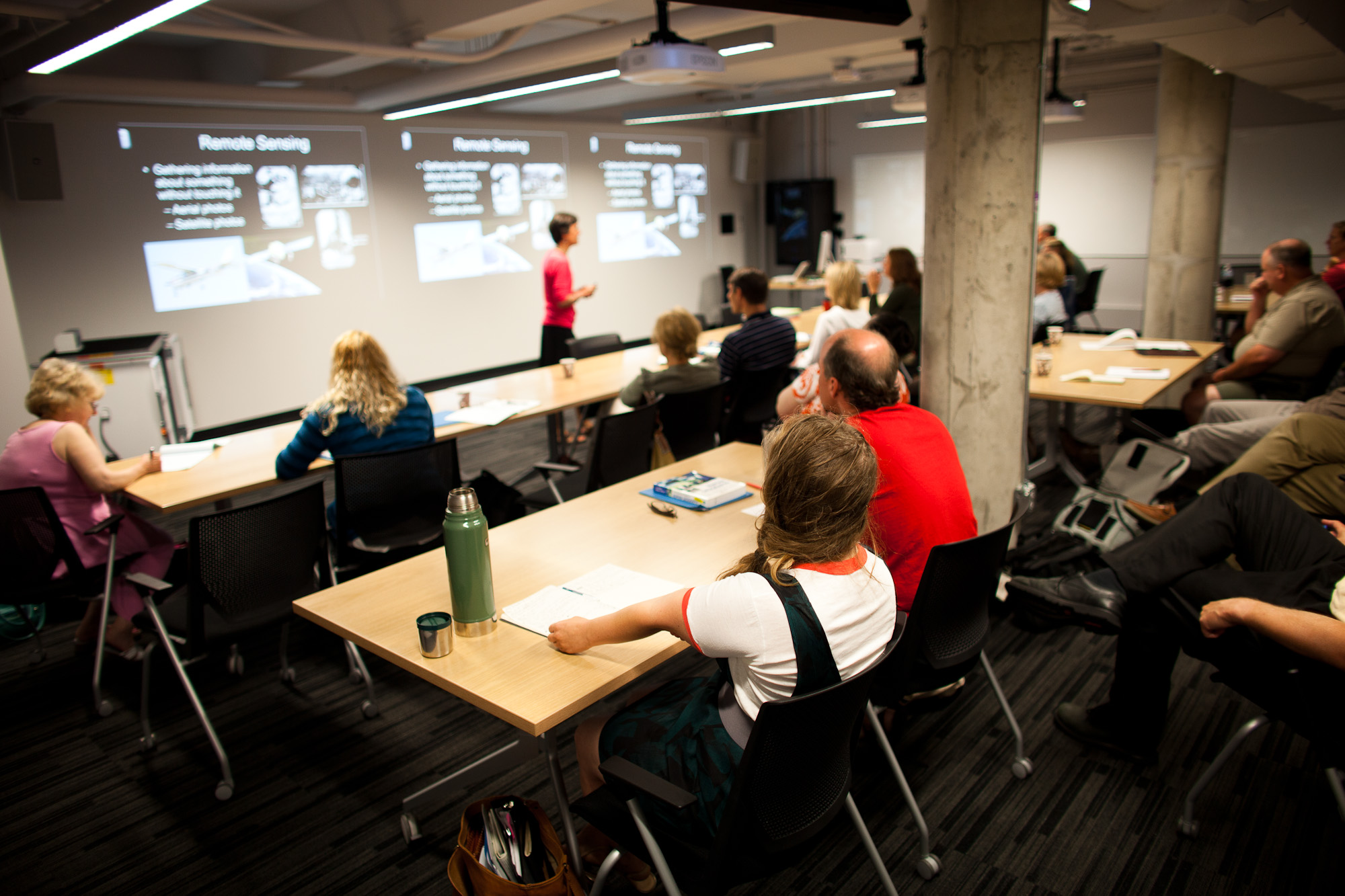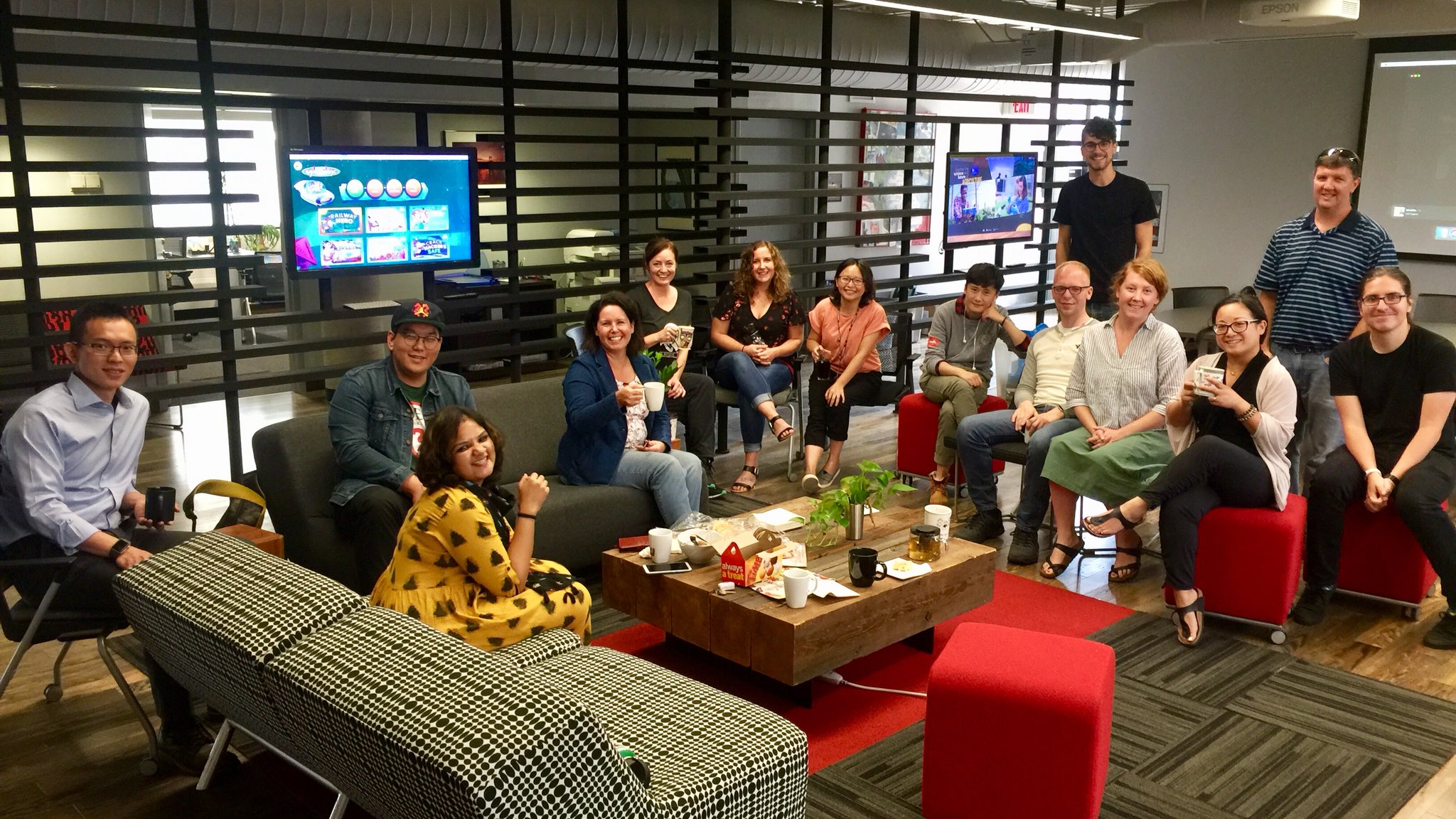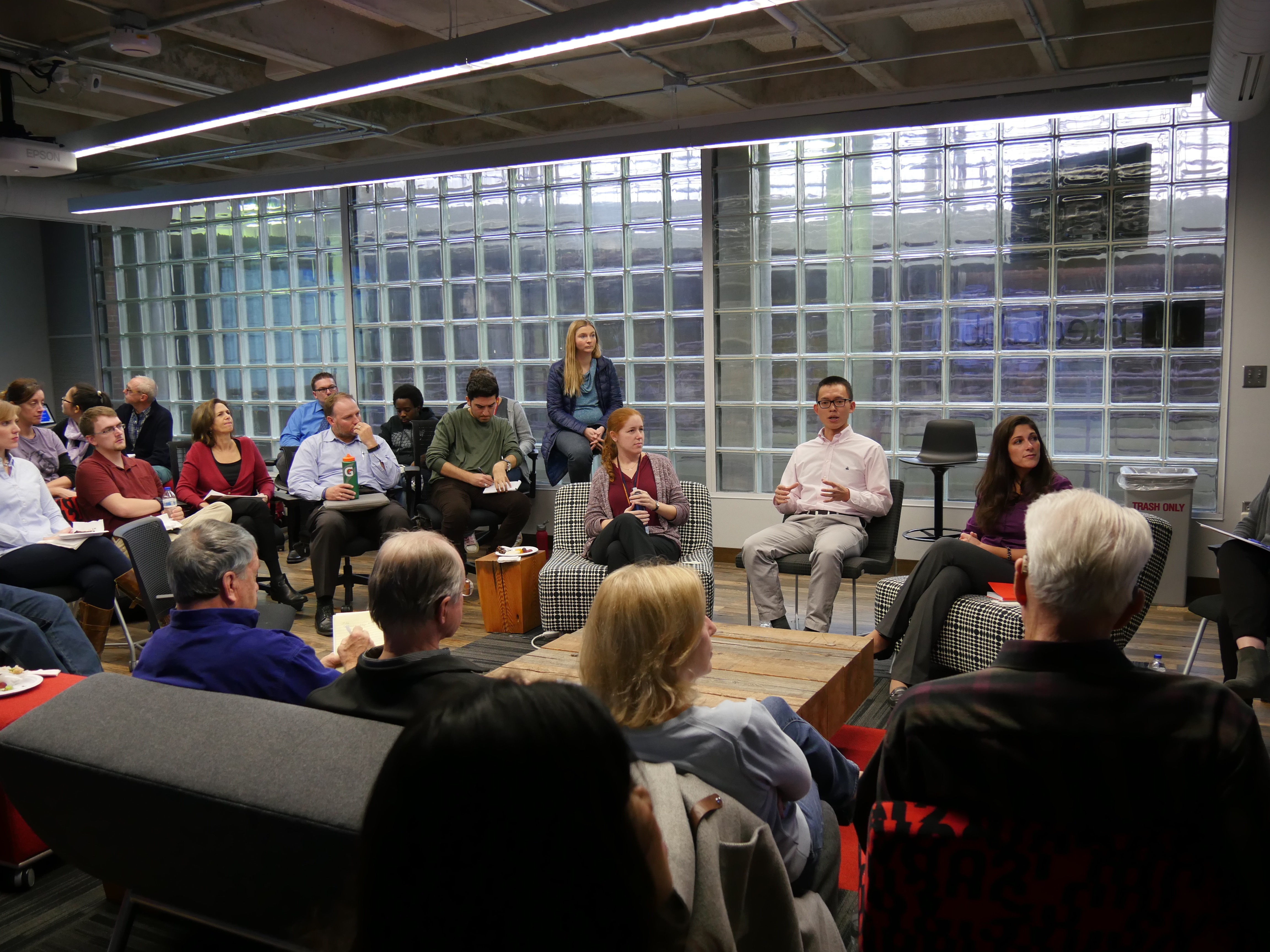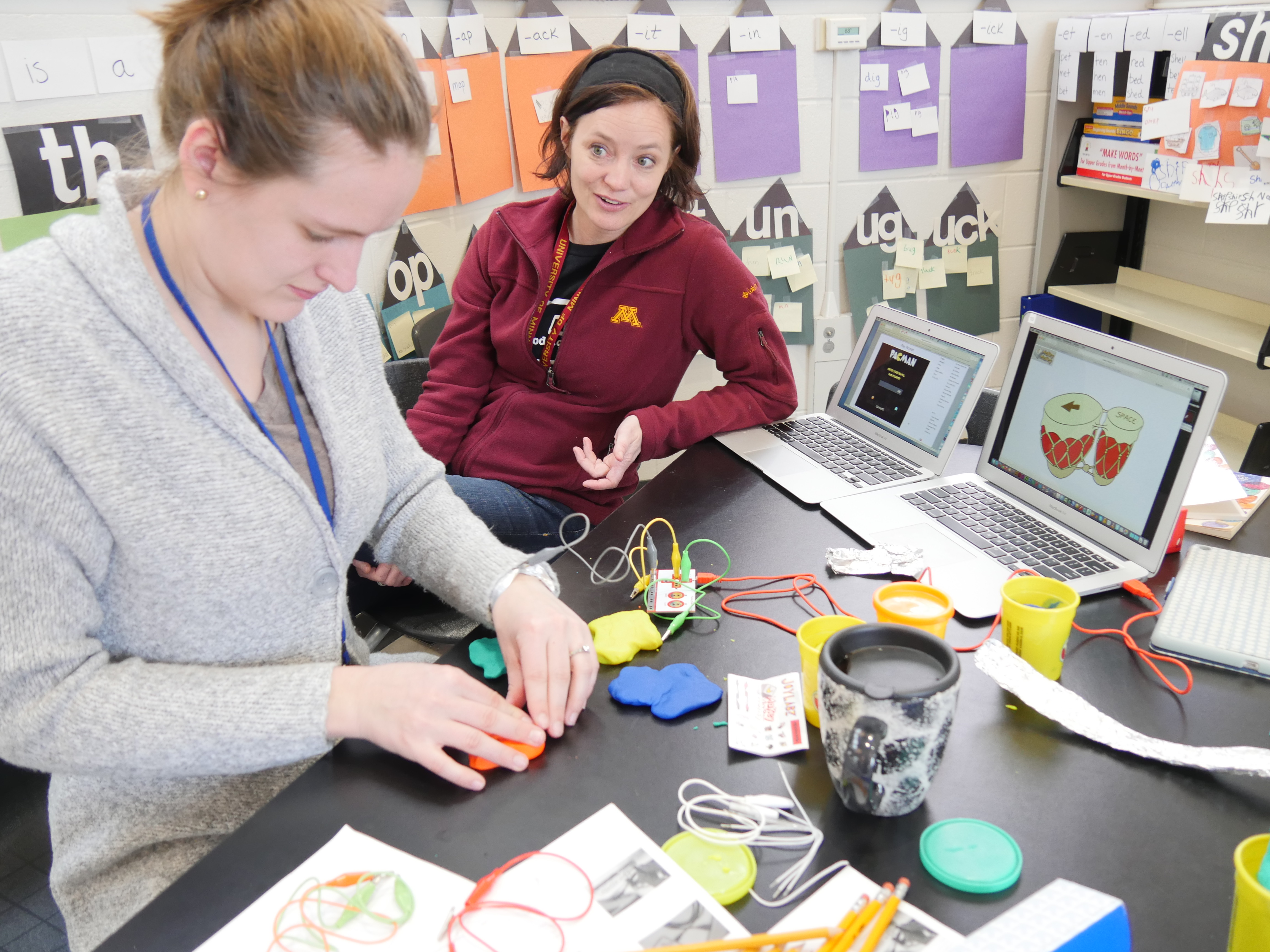November 20, 2017
The annual conference of the Association for Educational Communications and Technology (AECT) was held in Jacksonville, Florida, this year. LT had fantastic representation at this international conference, with several graduate students and faculty presenting their scholarship. This annual event draws over 1,000 educators, graduate students, and industry professionals whose activities are directed toward improving instruction through technology. The theme of this year’s conference was Leading Learning for Change, emphasizing the interconnected nature of our world and the work we do, which often is subject to rapid change as both theory and practice evolve.
Senenge Andzenge presented a roundtable discussion titled “Fostering creativity through inquiry in Environmental Science Education.” In this session, Andzenge shared findings from a multi-year professional development collaboration between a team of researchers from the University of Minnesota and secondary school environmental science teachers. This project centered on supporting teachers to meaningfully integrate technology in their teaching experiences, and helping students make connections between science concepts and socio-environmental issues within their communities. Attendees engaged in a rich discussion and exchange of various approaches to using technologies to deepen learning experiences for both secondary school science teachers and students.
Jennifer Englund served as a panelist in a moderated session titled “Panel on Graduate Students’ Careers and University Human Resources.” During the session, the panelists discussed the reasons for the increase of alternative academic positions, debated the pros and cons of the positions in graduate students’ careers, and shared their recommendations for graduate students’ career strategies. The graduate student panelists identified career planning strategies they are pursuing, and the faculty panelists shared how their institutions are addressing alternative academic positions in the context of hiring decisions.
Angel Pazurek and Matti Koivula presented “Learners as Leaders: Co-Creating Active Learning Experiences Through Student Agency.” They discussed the shared responsibilities between instructors and students in a learner-centered approach to distance learning. Best-practices literature tends to focus on instructors’ responsibilities, but more dialogue is needed about shared responsibilities with learners and ways to promote student agency by actively involving them in co-creating the learning experience. This positions learners as leaders, preparing them for future success.
Christiane Reilly presented “Leading Learning to Higher Levels through Authentic Task Design,” which showcased a method by which online courses can be evaluated and redesigned to foster twenty-first century skills. Reilly argued that this approach addresses a two-fold problem. First, pedagogy in many online classrooms continues to apply a content-driven approach that results in inert knowledge. Additionally, course design standards fail to address twenty-first century skills or the pedagogy that supports them.
Cassie Scharber and Angel Pazurek shared a research presentation titled “Women’s Publication Rates as an Indicator of Leadership in the Field of Educational Technology.” This study conducted by Scharber, Pazurek, and Fan Ouyang utilized bibliometric methods to analyze publication rates among female and male authors in top educational technology journals. Findings indicate that although female rates continue to increase, there remains discernible disparity in women’s representation in journals sampled in this study. Scharber and Pazurek argued that this holds important implications for the future visibility of women scholars as leaders in educational technology fields.





